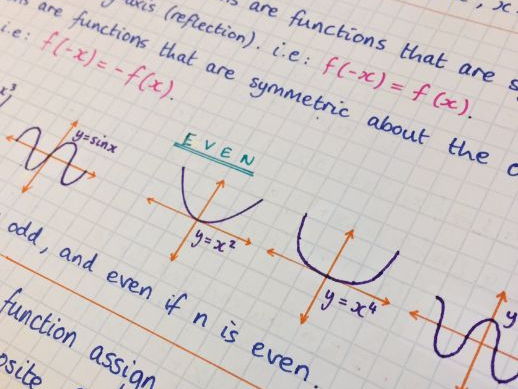Is IB Harder Than A Levels? Choosing between the International Baccalaureate (IB) and A Levels is a significant decision for students aiming to pursue higher education. Both qualifications are globally recognised and offer unique advantages. This guide explores their differences, focusing on curriculum structure, difficulty levels, grading systems, and university preferences.

A Levels vs. IB: What You Need to Know
A Levels (Advanced Levels) are subject-specific qualifications primarily offered in the UK. Students typically choose three or four subjects to focus on. This allows them to delve deeply into their chosen areas of study. This gives students the opportunity to specialise and gain in-depth knowledge in the subjects that interest them most.
The International Baccalaureate Diploma Programme (IBDP) is an internationally recognised qualification. It requires students to study six subjects from different disciplines, ensuring a broad and well-rounded education. In addition to the academic subjects, the programme includes core components:Theory of Knowledge (TOK), an Extended Essay (EE), and Creativity, Activity, Service (CAS), encouraging personal growth and critical thinking.
Is IB harder than A Levels: Curriculum Differences
While thinking is IB harder than A Levels, one of the main differences is the balance between specialisation and depth of study.
A Levels: Students focus on specialising in three or four subjects, allowing them to explore those areas in greater depth. This focused approach can be beneficial for students who have a clear idea of their future career path.
IB: In contrast, the IB requires students to study six subjects across various disciplines. This ensures a broad educational experience, helping students develop a wider range of skills. While this may seem challenging, it can be beneficial for those seeking a well-rounded education.
IB Diploma vs A Levels: Core Components
Another key difference between A Levels vs IB difficulty lies in the structure of the programs.
A Levels: The focus is primarily on subject-specific content, with an emphasis on final examinations. It provides depth in chosen subjects but doesn’t cover other topics outside the selected ones.
IB: In addition to six subjects, the IB includes the Theory of Knowledge (TOK), the Extended Essay (EE), and Creativity, Activity, Service (CAS). These components are designed to foster critical thinking, research skills, and personal development, creating a more holistic learning experience.
These curriculum differences highlight the contrasting approaches of A Levels and the IB program. A Levels allow for a more in-depth study of fewer subjects. The IB ensures a broader, more comprehensive education, preparing students for future academic challenges.
IB vs A Levels
| Criteria | A Levels | IB |
| Subject Load | 3-4 subjects | 6 subjects |
| Depth of Study | In-depth focus on fewer subjects | Broad focus across multiple subjects |
| Core Components | Focuses on subject-specific content with exams | Includes TOK, EE, and CAS |
| Assessment Method | Mainly final exams, some coursework | Combination of internal assessments, coursework, and final exams |
| University Preference | Recognised by UK and international universities | Recognised globally by universities |
| Duration | 2 years (Year 12 & 13) | 2 years (Diploma Programme) |
| Grades | Grades from A* to E | Grades from 1 to 7 (Max 45 points) |
Is IB Harder Than A Levels? Assessment Methods
When discussing is IB harder than A Levels, one of the key differences lies in the assessment methods.
A Levels: Students are primarily assessed through final examinations, which carry the majority of the weight in determining their grades. Some subjects may incorporate coursework, but the main focus is on end-of-year exams. This allows for deep focus on the subject matter, but can also create intense pressure during exam periods.
IB: The IB uses a combination of internal assessments, coursework, and final exams to contribute to a comprehensive evaluation. This approach ensures that students are assessed on their ability to apply knowledge, think critically, and engage in long-term research projects, such as the Extended Essay (EE).
The differing assessment methods highlight another key distinction between A Levels and IB. While A Levels place more emphasis on final exams, the IB offers a more diverse approach to evaluation, incorporating a wider range of academic skills.
What Are the Advantages of A Levels?
Specialisation: One of the main advantages of A Levels is the ability to focus deeply on specific subjects that align with your career goals. This depth of study allows students to become experts in their chosen areas, which is particularly valuable for students who have a clear idea of their future path.
Flexibility: A Levels offer a greater degree of flexibility, allowing students to choose subjects based on their interests and career aspirations. There is no requirement to study unrelated disciplines, which means students can tailor their education to suit their strengths and ambitions.
What Are the Advantages of the IB Programme?
Holistic Education: The IB Programme encourages a well-rounded academic profile by requiring students to study a diverse range of subjects. This extent of study ensures that students are exposed to multiple disciplines. This approach helps them to develop a more comprehensive understanding of the world.
Development of Critical Skills: The IB components, such as Theory of Knowledge (TOK) and the Extended Essay (EE), are designed to enhance critical thinking, research abilities, and time management skills. These skills are invaluable for university studies and future careers, providing students with a solid foundation for success in any field.
These advantages highlight the unique strengths of both qualifications, allowing students to choose the pathway that best suits their academic strengths, career goals, and preferred learning style.
Conclusion
Both A Levels and the IB offer distinct pathways to university admission and personal development. A Levels provide a deep focus on chosen subjects, making them ideal for students who prefer specialisation and depth. In contrast, the IB offers a more comprehensive curriculum, encouraging a well-rounded education and fostering a broad set of skills that can be beneficial in diverse academic and professional fields.
When making this important decision, consider your learning style, career goals, and the type of academic experience you want. If you need extra support, online tutors can offer tailored guidance to help you navigate both A Levels and IB, ensuring you stay on track with your studies and achieve your full potential.
FAQs:
What is IB?
The International Baccalaureate (IB) is an internationally recognised qualification that requires students to study six subjects and complete core components like TOK, the Extended Essay, and CAS.
What is an A Level?
A Levels are subject-specific qualifications primarily offered in the UK. Students typically specialise in three or four subjects, focusing deeply on their chosen areas.
Should I choose IB or A Level?
Choose A Levels if you prefer specialising in fewer subjects. Choose IB if you want a broader education with a focus on critical thinking, research, and personal development.
Is IB Diploma harder than A Levels?
The IB Diploma is generally considered more challenging due to its requirement of studying six subjects and completing additional components like TOK, EE, and CAS. A Levels focus on three or four subjects, allowing more in-depth study.
Is IB equivalent to A Level?
Yes, the IB Diploma is considered equivalent to A Levels in terms of university entrance requirements, but the IB covers more subjects and includes additional components like TOK and the Extended Essay.
Does Harvard prefer IB or A Levels?
Harvard values both IB and A Levels equally, looking for strong academic performance. IB is recognised for its broad, holistic approach, while A Levels provide in-depth subject focus.








